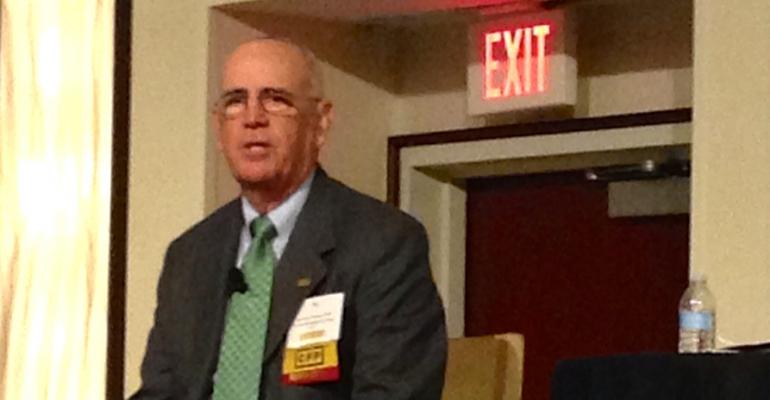Recent financial planning graduates of CFP-Board registered programs can now refer to themselves as “CFP candidates,” a rule change aimed at boosting completion levels of the designation among young advisors entering the industry.
CFP Board Chair Ray Ferarra announced the change in the term’s usage at the organization’s registered programs conference Friday. Ferrara said at the recent July meeting of the CFP’s board of directors, the board voted to authorize recent graduates of financial planning certificate and degree programs to use the term “CFP Candidate” for up to 5 years after graduation.
Previously the term referred to anyone who has signed up to take the CFP exam, but the Board felt that “wasn’t a very useful term,” says Marilyn Mohrman-Gillis, managing director of CFP Board’s public policy & communications. The board of directors was also very uncomfortable with people signing up for the exam and using the term indefinitely . Now those preparing for the exam after completing the education requirements and using the title will be capped at 5 years.
The new structure broadens the group who can use the term “CFP Candidate” to those who have completed the education requirement for the CFP certification. While candidates may not use the term on business cards or stationary, they can refer to themselves as CFP candidates in job interviews and on resumes. Recent graduates who have completed a registered program up to four years ago can call themselves a CFP candidate for the next year.
Mohrman-Gillis hopes the use of the term will help students gain employment and encourage them to complete their CFP certification. But both Ferrara and Mohrman-Gillis noted that the term was not a designation or a pre-designation title. Ferrara said that the CFP Board previously floated the idea of an “associate CFP,” a CFP-lite designation to its membership in 2000, but the certification holders did not care for the idea.
John Grable, a professor with the University of Georgia’s financial planning program, said the change, while subtle, has the potential to help students gain employment and resonate with clients. “It signals to clients that the students might be lacking the experience factor, but they’re almost there.”





